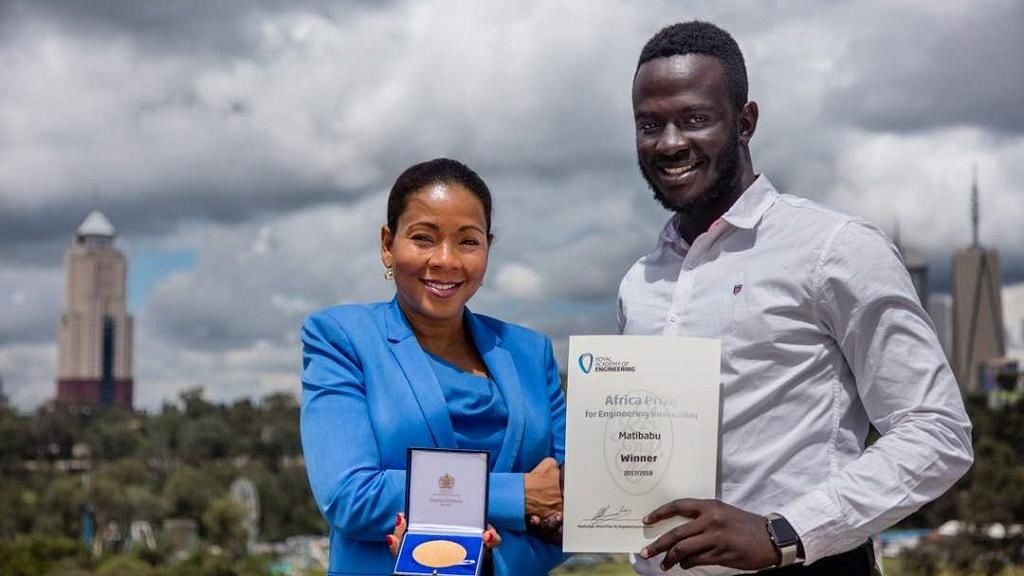24-Year-Old Ugandan Inventor Wins Africa Prize for Engineering After Creating Bloodless Malaria Test
He is the first Ugandan to win the prize, and the youngest winner to date.
The Royal Academy for Engineering's Africa Prize awards young African innovators, using their skills to find solutions to the challenges facing their communities, with a cash prize to support their work.
This year's award has gone to 24-year-old Ugandan inventor Brian Gitta, who created a device Matibabu which detects malaria without drawing blood. Instead, the device shines a red beam on a patient's finger which identifies malaria symptoms and sends the results of the patient's test straight to their cell phone.
"Matibabu," which means "treatment" in Swahili, works by examining red blood cells when clipped to a patient's finger and does not require a specialist to operate.
Gitta developed the device after realizing the limitations of blood-based tests. He suffered from malaria himself, which went undiagnosed even after several blood tests.
"Matibabu is simply a game-changer," said Africa Prize for Engineering Judge Rebecca Enonchong in a statement.
"It's a perfect example of how engineering can unlock development—in this case by improving healthcare."
The inventor will receive a $33,000 prize as well as support, funding and mentorship for him to continue his work with Matibabu.
